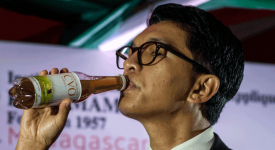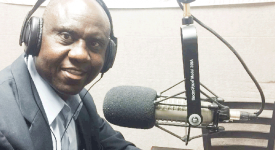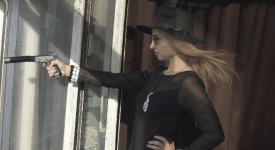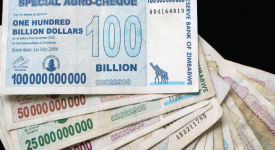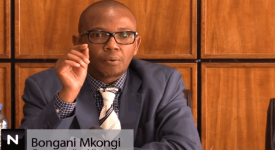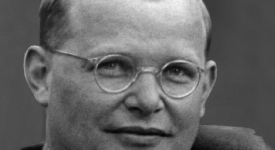If you believe that Africans are “notoriously religious” then you will be disappointed by the story of Chibok.
Narrating Chibok
“Bring Back Our Girls” is the ORIGINAL, not foreign, story of indigenous mass social mobilization and media campaign movements across the frontiers of Nigeria.
“Bring Back Our Girls” tells a story — a story which foreign media mostly know much about in medias res. Like the story of subalterns everywhere, but also because the piper payer comes from foreign fangs, feigning autochthonous identification, “Bring Back Our Girls” was (nearly) redefined by red-carpeted-able moguls, who wield total holds over capital and intent.
Yet…”Bring Back Our Girls”… it all began in a little village called CHIBOK…in Africa’s most populous, strongest, country; it is a Nigerian STORY…with a universal appeal to end violence; of course, the cultural and local political favor makes it all the more fragile.
Re-imaging Chibok
Residents of Chibok are predominantly Christian.
Unlike the United States, which has counties, Nigeria uses Local Government Areas (LGAs) systems. Chibok is one of the 774 LGAs, and it is located in southern Borno State, with headquarters in the town of Chibok. Chibok has an area size of 1,350 km² and a population of 66,105 (according to the 2006 census).
RELIGION IN CHIBOK
Although it is located in the Northern part of the country where Islam has a stronghold, Chibok is primarily Christian village. Religion in Nigeria plays several roles in shaping individuals. Social and cultural and political co-existence are enhanced, facilitated (or marred) by the religious factor. Politically Nigeria’s ruling elite have mastered the manipulation of spirituality to continually enhance their own power, often at the expense of the people. Whether there are atheists in Nigeria is another topic entirely, as the English reminisce: none are in foxholes.
Scripturalizing Chibok
The recent kidnap of in 2014 of nearly 300 (purportedly Christian) school girls from Government Girls College, Chibok, brings the subject of violence in Nigeria out of its local closet. Since the times of General Sani Abacha, the feared, Nigerian violence seems to have been remarkably ignored by foreign media, mostly due to mass global malaise, perhaps the consequence of a much broader international conspiratorial plot against blackness — a critical imputation in the co-efficiency western biographies of darkness. But this brutally consequential assault on Chibok marks an extensive reign in the reins of the Boko Haram, to wit, global amnesia begins to receive divine healing.
PRINCIPLES OF BOKO HARAM
Boko Haram’s philosophy is to resurrect the ideals of Osama bin Laden, the Islamist terrorist and mastermind of the terrorist attacks on the United States’ Twin Towers in New York; who taught hatred and mutiny of the west.
Abubakar Shekau
The Abubakar Shekau equals the resurrection of Osama bin Laden. He is the new face in the phase of the deafening extension of terrorist affiliation. Shekau identifies himself as an Islamic holy man, sent by divine order to implement Allah’s desires.
Shekau’s terror leadership only reignites the debates over the the relevance of religion, religious studies, and research on what Professor of Religion and Director of the Institute for Signifying Scriptures at Claremont Graduate University, CA, calls scripturalization in White Men’s Magic: Scripturalization as Slavery
Boko Haram: A Violence Minicry
Whenever the word “violence” is mentioned in Nigeria, two of many things come to mind: religion or cultism. But this stereotyping naturally hides several other layers of violence, undisclosed, unmentionable.
In the same vein, talk about religious violence and Christians are ready to point the finger (out) to the other religion (Islam), and vice versa.
Socio-culturo-politically, responsibility and accountability is of a different specie. The more you (as foreign media/interpreter) look, or the more you think you see; the less you (necessarily must) understand.
The myth of violence in Nigeria is really that it is a political currency with immense social and cultural value. Players often are unable to take pause and evaluate the tendencies which their mannerism and conducts produce. Political leadership is do or die; winners are divided out from among the remaining loser breed.
Of course, it was from this political atmosphere that Boko Haram was birthed, first as a stop to Christian image which President Goodluck Jonathan’s administration is accused of; secondly, Boko Haram is a hyper fundamentalist orientation in Islamic ideologization in Nigeria, a re-imaging of the Uthman Dan Fodio jihad.
Although it is interesting that Boko Haram is now killing Muslims, including emirs in the north, we need to note that politics in Nigeria is a zero sum game. Besides, the killing of prominent Muslims by the terror sect might as well be described as plain assassination, thereby eliminating potential or real traitors within the Islamic fold; it is a form of cleansing.
Third, Boko Haram mimics and reapplies Nigerian political violence with a modifier — religious extremism.
Article originally written for www.bringbackourgirls.today.


